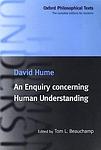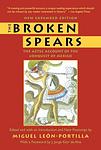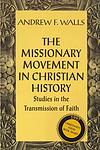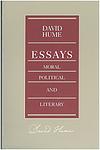The Greatest Roman, Scottish, Mexican "Nonfiction" Books of All Time
Click to learn how this list is calculated.
This list represents a comprehensive and trusted collection of the greatest books. Developed through a specialized algorithm, it brings together 305 'best of' book lists to form a definitive guide to the world's most acclaimed books. For those interested in how these books are chosen, additional details can be found on the rankings page.
Genres
Countries
Date Range
Reading Statistics
Click the button below to see how many of these books you've read!
Download
If you're interested in downloading this list as a CSV file for use in a spreadsheet application, you can easily do so by clicking the button below. Please note that to ensure a manageable file size and faster download, the CSV will include details for only the first 500 books.
Download-
1. Confessions by Augustine
"Confessions" is an autobiographical work by a renowned theologian, in which he outlines his sinful youth and his conversion to Christianity. It is written in the form of a long, introspective prayer directed to God, exploring the author's spiritual journey and deep philosophical ponderings. The book is renowned for its eloquent and deeply personal exploration of faith, making it a cornerstone of Christian theology and Western literature.
The 148th Greatest Book of All Time -
2. Meditations by Marcus Aurelius
"Meditations" is a collection of personal writings by a Roman Emperor, providing deep insights into Stoic philosophy. The book is a series of introspective reflections on how to deal with life's challenges with wisdom, integrity, self-discipline, and benevolent affection for all mankind. It serves as a manual for self-improvement and moral guidance, emphasizing the importance of accepting things outside of one's control and maintaining a tranquil mind amidst adversity.
The 390th Greatest Book of All Time -
3. The Wealth of Nations by Adam Smith
This influential economic book presents a groundbreaking theory that argues for free market economies. The author posits that individuals acting in their own self-interest within a system of natural liberty will result in societal benefit, a concept often referred to as the "invisible hand" theory. The book also critiques mercantilism and explores concepts such as the division of labor, productivity, and free markets. It is widely considered one of the foundational texts in the field of economics.
The 425th Greatest Book of All Time -
4. De Rerum Natura by Lucretius
"De Rerum Natura" is a long didactic poem written in the first century BC, which explores Epicurean philosophy and the nature of the universe. The text delves into topics such as the nature of the gods, the atomic structure of the universe, human sensation and thought, and the fear of death. The author argues that understanding the physical world can free humans from superstition and fear, leading to peace of mind and true happiness.
The 491st Greatest Book of All Time -
5. Annals by Cornelius Tacitus
"Annals" is a historical work that provides a comprehensive account of the Roman Empire from the reign of Tiberius in 14 AD to the death of Nero in 68 AD. The author, a senator and historian of the Roman Empire, explores the inner workings of Roman politics, military campaigns, and social culture during this period. The book offers an in-depth look at the political machinations, power struggles, and the moral decay of the Roman elite, providing a critical perspective on the Roman emperors and their rule.
The 901st Greatest Book of All Time -
6. An Enquiry Concerning Human Understanding by David Hume
This philosophical work explores the nature of human knowledge, arguing that all of our understanding comes from experience rather than innate ideas. The author challenges the idea of causality, suggesting that our belief in cause and effect is based on habit rather than logical reasoning. The book also discusses the limitations of human understanding, including the inability to fully comprehend the concept of God or the soul, and the impossibility of certain knowledge. The author's skepticism about traditional philosophical concepts has had a significant influence on later philosophers and the field of epistemology.
The 977th Greatest Book of All Time -
7. The Labyrinth of Solitude by Octavio Paz
This book is a profound and vivid exploration of Mexico's character, culture, and identity. The author delves into Mexico's history, politics, and psyche, examining the country's deep solitude and its impact on the national character. The book provides a comprehensive analysis of Mexican society, its myths, symbols, and rituals, offering a deep understanding of the Mexican people's unique way of perceiving the world. It also discusses the influence of the United States on Mexico and the complex relationship between the two countries.
The 1128th Greatest Book of All Time -
8. Lives of the Caesars by Suetonius
"Lives of the Caesars" is a historical narrative that provides a detailed account of the personal and public lives of the first twelve Roman emperors, from Julius Caesar to Domitian. The author presents a vivid depiction of their character, behavior, appearance, and private lives, as well as their political actions, military exploits, and administrative policies. The book is a valuable source of information about the Roman Empire's early days, offering a unique perspective on the power, corruption, and extravagance of the Roman elite.
The 1325th Greatest Book of All Time -
9. The City of God by Augustine
The book is a philosophical and theological masterpiece, written as a defense of Christianity after the sack of Rome in 410 AD. The author contrasts the earthly city, characterized by pride and love of self to the point of contempt for God, with the heavenly city, characterized by love of God to the point of contempt for self. He argues that though the earthly city may seem dominant in the present age, the heavenly city will ultimately triumph. The book is a profound exploration of history, philosophy, religion, and the human condition.
The 1643rd Greatest Book of All Time -
10. Letters from a Stoic by Seneca
"Letters from a Stoic" is a collection of moral epistles written by a renowned Stoic philosopher. The letters provide practical guidance on everything from dealing with adversity and the pursuit of wisdom to the folly of consumerism and the nature of friendship. The author's stoic philosophy encourages peace of mind through understanding and accepting the natural order of the universe, and his letters offer timeless wisdom and insights that are still relevant today.
The 1703rd Greatest Book of All Time -
11. Histories by Cornelius Tacitus
"Histories" is a comprehensive account of the Roman Empire from 69-96 AD, a period marked by significant political turmoil. It provides an in-depth look at the reigns of four emperors: Galba, Otho, Vitellius, and Vespasian, along with the social and political upheavals of the time. The narrative also covers the Jewish rebellion and the burning of the Jerusalem Temple, offering a rich historical context of the period. Despite some gaps in the record, it remains a crucial primary source for understanding this era of Roman history.
The 1803rd Greatest Book of All Time -
12. Germania by Cornelius Tacitus
"Germania" is a historical and ethnographic work that provides a detailed description of the lands, customs, and tribes of the Germanic people in the first century AD. The author, a Roman historian and senator, offers a comprehensive account of the geography, anthropology, social institutions, and military practices of the Germanic tribes, often comparing their culture and values to those of the Romans. The work is considered a valuable source of information about the ancient Germanic tribes, despite its possible biases and inaccuracies.
The 2333rd Greatest Book of All Time -
13. Titi Livi Ab urbe condita libri by Livy
This historical work offers a comprehensive narrative of the history of Rome, from its mythical origins to the reign of the Roman Emperor Augustus. The author chronicles the major political, military, and social events of the Roman Republic, including the founding of the city, the establishment of the Republic, the Punic Wars, and the rise of Julius Caesar. The book is a significant source of information about the early history of Rome and is often considered one of the most important works of Roman history.
The 2400th Greatest Book of All Time -
14. Poetry by Quintus Lutatius Catulus
This book is a collection of ancient Roman poetry by a renowned statesman and poet. The poems reflect the author's experiences, thoughts, and feelings about life, love, politics, and society during the Roman Republic era. The author's eloquent and vivid writing style, combined with his astute observations and insights, make this book a valuable resource for understanding Roman culture and history.
The 2844th Greatest Book of All Time -
15. Catiline Orations by Marcus Tullius Cicero
"Catiline Orations" is a series of speeches given by a renowned Roman statesman, which were aimed at exposing and condemning the conspiracy led by Lucius Sergius Catilina. The speeches, delivered in the Roman Senate, are a masterful display of oratory skills and political acumen, as the statesman successfully manages to turn the Senate against Catiline, ultimately leading to his downfall. The book offers an in-depth study of these speeches, providing valuable insights into Roman politics, rhetoric, and the art of persuasion.
The 3093rd Greatest Book of All Time -
16. Natural History by Pliny (the Elder)
"Natural History" is an extensive work of literature that provides a comprehensive look at the knowledge of the natural world during the Roman era. The book is divided into 37 volumes, each focusing on different aspects such as geography, anthropology, zoology, botany, and mineralogy. The author's curiosity and fascination with the world are evident in his detailed observations and descriptions. The book also includes discussions on art, sculpture, and various other topics, providing a rich and detailed snapshot of the Roman understanding of the world.
The 3202nd Greatest Book of All Time -
17. The Consolation of Philosophy by Boethius
"The Consolation of Philosophy" is a philosophical work written in the 6th century, where the author, imprisoned and awaiting execution, engages in a series of dialogues with Lady Philosophy about the nature of life and human happiness. The author grapples with the harsh realities of his own life, including his fall from favor, his unjust imprisonment, and impending execution. Through these dialogues, the author learns to understand life from a philosophical and spiritual perspective, finding consolation and peace amidst his dire circumstances. The work is a profound meditation on fate, free will, time, and eternity.
The 3462nd Greatest Book of All Time -
18. On The Ends Of Good And Evil by Marcus Tullius Cicero
"On the Ends of Good and Evil" is a philosophical work that explores the ethical theories of Hellenistic schools, including Stoicism, Epicureanism, and the Peripatetic tradition. Through a series of dialogues, the text delves into the nature of happiness and the ultimate end of human action, examining what constitutes the highest good. The author critiques and compares the doctrines of these schools, ultimately defending the Stoic view that virtue is the sole basis of happiness and the ultimate goal in life, while also acknowledging valuable insights from other philosophical traditions.
The 4688th Greatest Book of All Time -
19. The Broken Spears by Miguel Leon-Portilla
"The Broken Spears" presents a poignant account of the Spanish conquest of the Aztec Empire from the perspective of the indigenous people. Through a compilation of Nahuatl texts, the book offers a narrative that contrasts sharply with the traditional European-centered histories. It highlights the devastating effects of Spanish conquest on the Aztec civilization, including the significant cultural and human losses suffered due to violence and disease. The work provides a voice to the Aztec people, showcasing their courage, complexities of their society, and the tragic impact of colonialism.
The 5517th Greatest Book of All Time -
20. Catiline's War, The Jugurthine War, Histories by Sallust
This book is a combination of three works by a Roman historian and politician, focusing on the political and military events of the late Roman Republic. It first covers the conspiracy led by Catiline in 63 BC, then shifts to the war against Jugurtha in North Africa, and finally provides a fragmentary history of Rome from 78-67 BC. The author uses these events to critique the moral decay of Rome, highlighting the corruption, greed, and ambition that he believed led to the fall of the Republic.
The 6513th Greatest Book of All Time -
21. The Missionary Movement In Christian History by Andrew Walls
"The Missionary Movement in Christian History" explores the significant role of missionary activities in the spread and development of Christianity throughout history. The book examines how cultural exchanges influenced the practice and perception of Christianity in various contexts, highlighting the adaptability and transformation of Christian faith as it intersected with diverse cultures around the world. The author discusses the implications of these interactions for both the missionary movement and the broader historical and cultural developments, providing insights into the dynamic relationship between religion and cultural change.
The 6608th Greatest Book of All Time -
22. Mexico: Biography of Power by Enrique Krauze
This book offers a comprehensive exploration of the political and social evolution of Mexico, tracing the country's history from the pre-Columbian era to the late 20th century. It delves into the lives and legacies of Mexico's influential leaders, examining how their exercise of power shaped the nation's identity and destiny. The narrative weaves through the complexities of Mexico's revolutions, reforms, and relationships with external powers, providing a deep understanding of the forces that have defined the country's path and the characters who have stood at the helm of its journey. Through a blend of biography and historical analysis, the work presents a vivid portrait of a nation's struggle for sovereignty, stability, and self-definition.
The 6657th Greatest Book of All Time -
23. Essays, Moral, Political, And Literary by David Hume
This collection of essays by the philosopher explores a range of topics across ethics, politics, and aesthetics. Written in a clear, conversational style, the essays examine human nature, the workings of government, economic theories, and the merits of refined taste, among other subjects. The author employs a skeptical approach to question traditional doctrines and suggests that politics and morals should be grounded in empirical observations of the world. The work reflects the Enlightenment spirit of rational inquiry and has been influential in the development of modern political philosophy and economic thought.
The 6745th Greatest Book of All Time -
24. Tell Me How It Ends: An Essay in 40 Questions by Valeria Luiselli
This book is a powerful exploration of the critical issue of child immigration, focusing on the experiences of Central American children who arrive in the United States without their parents. The narrative is structured around 40 questions that the author, as a court interpreter, must ask the children to help determine their fate. The book provides a deeply personal and moving account of the human stories behind the ongoing debate over immigration and asylum laws.
The 6854th Greatest Book of All Time -
25. Essays Of Robert Louis Stevenson by Robert Louis Stevenson
This collection of essays offers a window into the mind of its renowned author, showcasing his wide-ranging interests, personal reflections, and literary prowess. The essays cover topics as diverse as travel, dreams, writing, and the complexities of human nature, all conveyed with the author's characteristic wit, eloquence, and insight. Through these pieces, readers are invited to ponder life's great questions and to appreciate the everyday wonders that the author observes with such keen perception and articulates with timeless grace.
The 7168th Greatest Book of All Time
Reading Statistics
Click the button below to see how many of these books you've read!
Download
If you're interested in downloading this list as a CSV file for use in a spreadsheet application, you can easily do so by clicking the button below. Please note that to ensure a manageable file size and faster download, the CSV will include details for only the first 500 books.
Download






















